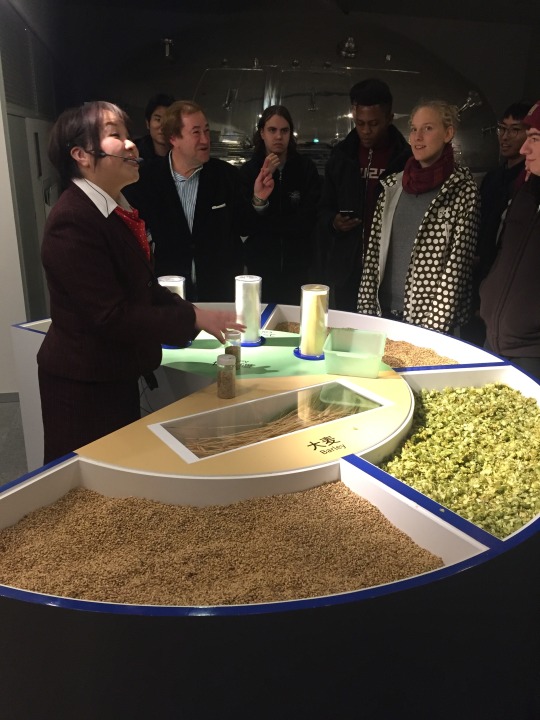#which alerted me to the ticket drop and I made one of the most impulsive decisions of my life
Explore tagged Tumblr posts
Text
Can’t believe I went to opening night all bc I accidentally got added to an opening night gc
#didn’t have tickets or anything#and then seat geek did that last minute drop which prompted the gc#which I was added to on accident#which alerted me to the ticket drop and I made one of the most impulsive decisions of my life
8 notes
·
View notes
Text
carolina (2)
pairing - emily prentiss x reader
summary - you meet emily in a bar, she doesn’t realize who you are until she hears a song about her on the radio
warnings - none
series masterlist

emily felt like she couldn’t breath.
the profiler tried to go on with her life, she really did. except, your song was already extremely popular. it was topping the charts, people were constantly talking about it, and it was played on most radio stations. it was incredibly difficult to avoid the song, nonetheless you.
an entire week went by of emily trying to escape the song. the details of your hookup were never released, emily was starting to regret not admitting it to j.j. and garcia. the tech analyst loved the song, always gushing about the lyrics. all emily wanted to do was yell that it was about her.
but she couldn’t for multiple reasons; your privacy and the reaction from others. sure the team knew of her partner preference but how would they react if they knew emily had hooked up with one of the most famous singers at the moment.
news articles were another issue too. drama outlets were pestering you with questions about who the song was about. each time, you would remain stubern and not open up. it made her want to scream.
emily decided to just move on, work becoming her main priority for the next few days. j.j. and penelope didn’t let up on their questions, though they did learn to be more subtle about it.
no new cases were presented which was more than suprising. the team was fairly thankful for it, paperwork and 9 to 5’s were usually uncommon. being able to actually work and be home in time for dinner was one of their simple pleasures.
walking into work, emily was focused on one thing; coffee.
she couldn’t have been in the main floor for more than a few seconds before penelope was rushing over to the elevators.
“hey em,” penelope greeted. “there was a package dropped off for you this morning. i told the delivery guy to just leave it at your desk.”
though emily nodded, her mind was already formulating theories as she hasn’t ordered anything recently. being a profiler will make you that paranoid.
just like penelope had said, a smile white box with a small gold ribbon sat on her desk. emily narrowed her eyes slightly, having even less of a clue on what it could be.
“well, are you going to open it?”
emily ignored the remarks from the team, taking a seat and placing her bag at the base of her desk.
with only slightly shaky hands, she reached out to untie the ribbon. the sides of the box fell away as the strings were released, leaving the top on. after pulling the final piece off, she froze.
inside was an envelope, another piece of paper under it. the note was in your handwriting, edges crisp and extremely neat. in cursive letters was ‘emily prentiss.’ all thoughts of it being a mix up went right out of the door.
she refrained from opening it yet, wanting to see the other contents in the box before reading. emily next put the note on her desk, now focused on what was under it.
of all things, it was a plane ticket. ‘washington dulles international airport (IAD) to los angeles international airport (LAX). 9:30 am.’ it was set for the following morning, first class and already paid.
emily opened the note, seeing a five letter offer scribbled down.
‘meet me in los angeles?’ -y/n
emily’s never taken time off quicker.
____
touching down in the warm city of los angeles, emily was a bundle of nerves. she was already begining to regret wearing joggers and a t-shirt.
she had no clue how to feel about dropping everything or just the situation as a whole
it was only when emily grabbed her luggage that she realized just how much of an idiot she was. she had just flow across the country with no clue where to go, who to talk to, or where you were. she was acting on pure adrenaline and impulse. her luggage finally came around, emily picking it up and extending the handle to grab.
a tap on emily’s shoulder caused her to jump. she turned around, now in front of a man in a clean black suit. he was holding a name card and a small index card.
“emily prentiss?” he asked.
“yeah?” emily replied, not quite sure what else to say. “this is for you,” he added, handing over the small piece of paper.
‘if you’re reading this, i assume you arrived with no issue. i sent leo to pick you up at the airport, hope he didn’t freak you out. he’ll take you back to mine. xx - y/n’
emily picked up her luggage once more, ready to follow leo out. “just letting you know, it’s a bit of a drive,” leo offered, getting in the drivers side while emily took the back. she nodded, letting out a sigh with it. at least she could think for awhile.
pulling up to your house, scratch that, it was pretty much a mansion, emily didn’t know if she had guessed completely correct on what it would look like or was just flat out wrong.
the house was in hollywood on one of the steep hills. after passing through the gates, a heavy security measure, she finally got view of the home. the outside was pretty modern, made up of mostly white and grey colors as well as many windows. a garden with a fountain in the center greeted her as they pulled into the circular driveway.
“well this is where i let you out. just head up the stairs and ring the doorbell. y/n should be down to greet you soon,” leo spoke. “i really hope everything works out. i’ve never seen y/n happier then when she came back from washington d.c.”
emily thanked him quietly, still processing the final piece of information he had spoke.
dragging her bags behind her, emily headed up the series of steps and to the door. just like leo had instructed, she pushed the doorbell button and stood back.
you didn’t greet her at the door, the lock on the door clicking signaling emily that it was now unlocked. she twisted the knob, pushing the door open and stepping inside.
the foyer may have been more impressive than the outside. a grand chandelier hug from the ceiling, a curved staircase leading up to the top floor. her heels clicked around the floor as she twirled around, looking up at the decor.
you heard the front door of your house open, the alarm alerting you just moments before. you were currently making lunch, just a simple sandwich and then fruit on the side
after putting your lunch on hold, abandoning your knife you were using as well as your now finished meal, you left the kitchen to meet your guest.
emily stood only slightly awkwardly in your open foyer. her bags were by her side, eyes darting around the room. half the stuff in there was probably worth more than she could think.
footsteps broke the profiler out of her observation.
you were finally in her eyesight a moment later, a small smile on your face as you walked down the hallway. what captivated emily once again was just your overall appearance. a sharp breath escaped her lips before she would realize that.
a loose oversized tan cardigan hung of your body, a white tank top underneath that with leggings as your pants. your hair was down, relaxed in its natural style. no makeup was on either, not even lipstick like you had on when she first met you.
“hey em,” god just the way you said her name made her blush.
“hi,” emily greeted, thankful her voice didn’t crack.
“i can take your bags upstairs,” you offered. “i’ll put them in my favorite guest room, it has the best views. you can go into the kitchen if you want, it’s just down the hall. the rooms open, there’s no way you can miss it.”
the two of you went your separate ways, you upstairs and her to the kitchen.
out of pure habit, emily ran her hand across the marble countertops, looking around at the details you had strewn about.
“sorry about the mess, i was just making,” emily jumped at your voice. she wasn’t expecting you back so soon. “it’s totally okay, honestly.”
another wave of awkward silence fell over you two, neither quite sure what to say. “look emily-” you started. “we do need to talk about what happened.”
“do we?” emily spoke. you laughed, “yes we do.”
while you took a seat at one of the counter seats, emily stood up. she was obviously holding back, reluctant how to go with the situation.
“come on emily. you’ve been all i’ve thought about for the past two weeks. hell, i even wrote a song about you. and we do need to talk about the elephant in the room,” you pleaded. “have you even heard it?”
emily nodded, “yes i have. my friend penelope sent me the link. listed it it then and didn’t really know how to react. it was kinda difficult to avoid, it’s playing everywhere. your doing amazing by the way. figured i could throw in a complement there.”
a blush passed across your cheeks. “thank you,” you whispered.
emily then looked down, fiddling with the hem of her shirt. you figured you might ask well just dive into the heavy stuff.
“all i’m saying is that you came here for a reason. there has to be some part of you that’s been thinking about me too. i would like to think you aren’t the person to just drop everything and meet in a whole different state for just anyone,” you commented.
you did get her there. emily did really just leave work without explanation to come see you.
emily didn’t respond, choosing to step forward to connect your lips. you hooked your legs around her, holding her cheek and arm in your hand.
the kiss was incredibly different than the one at the bar, that one being sloppy and rushed. you two were in a hurry, wanting to feel as much of the other as you could.
this one, you could actually take your time. very little could interrupt the two of you. you could actually savor the feeling of her body against yours.
“let’s give us a try,” you mumbled against her lips.
emily nodded, holding your waist a little tighter. “let’s give us a try.”
☆ ☆ ☆
tags - @itsmyblogandillreblogifiwantto @kissessforharryyy @garcias-batcave @zoseph @kissessfordraco @ogmilkis @cm-is-kinda-cool @matthewgublerswife @guessthatswhyiliveinhell @spencerslatte @babyangellee @agentshortstacc
#criminal#criminal minds#spencer reid#spencer reid x oc#spencer reid x reader#spencer reid x you#spencer reid x y/n#aaron hotchner#derek morgan#emily prentiss#emily prentiss x reader#jennifer jareau#david rossi#penelope garcia#luke alvez#matt simmons#tara lewis
267 notes
·
View notes
Note
Can I get a list of all ur ocs?
Well anon youve done it, you made me make a list of all my major OCS in one place. I hope your happy with yourself. Under the cut for obvious reasons, may link in my blog desc later.
Modern/BTD verse!!
Jilly- Ferret beastkin little creature, was recently turned into a werewolf by vincent as well so she's running around on full moons in a wereferret wolf hybrid creature form. Chaotic and friendly and wants to be everyone's bestie. She has the most energy in the world and is very kind hearted. Banned from most Claires for stealing and from one Home Depot for climbing the shelves. Prone to living life with rose colored glasses on and seeing the best in everything/everything even when there's nothing there. Socialization is a must for her and is why being basemented/kidnapped broke her psych so quickly and developed severe stockholm. Sometimes overly talkative/enthusiastic and can scare people off. Even if she sees someone shes decided shes friends with be noticeably 'evil', will convince herself it must be for some reason/her fault and ignore it.
Ciggy- Undead punk still learning to harness his powers to interact with the world as a ghost. Was sacrificed by a cult he joined for free concert tickets and to get laid. Likes to cause problems on purpose both pre and prior death and he's not above possessing someone once he learns how to. Was called Rooster in high school before he dropped out because he's loud, obnoxious and always screaming. And also has bright red dyed hair. Looking 4 ways to become less ghosty bcs he wants to be able to help raise his infant daughter, whom he died before he could meet. Bit annoying and in your face, likes poking at bruises, his or others. Kind of a sad heart seeking attention through volume and persistence.
Mike: Vampire loser! Sells drugs and lives at raves. Was turned when she was attacked by a coked out vampire (whom she supplied the product to) and has major scarring on her face and chest. Needs a somewhat constant influx of blood so shell sometimes take victims back to her place and chain them up, slowly draining them over time. Feels bad (ish) about it tho so it is possible to survive her if you are nice and or interesting enough. Kind of desperate for a friend and for love. Is a stalker. If she likes you enough/finds you interesting, she might just appear in your house one night and start rummaging through your fridge like nothing is wrong and youve been besties for years. Its best to indulge her and be friendly, otherwise she could turn violent quickly if her feelings are hurt.
Kilaine- Regular human woman, but fucked up. Born and raised by an elite waspy society she had an interest in the human body and pain tolerance since she was young. Quickly learned that these traits were socially unacceptable in most professions, so she became a doctor. The only family she cared about was her younger sister who she lost in a car accident, where they were flipped over and trapped inside while it was afire. While her sister burned up in front of her Kilaine only lost her left arm and had major burns on her body. This tipped her descent into sadism and she is now madly obsessed with bringing her sister back no matter the cost. Rude and offstandish, clinical.
Dragon age verse!
Thurwen- My main Hero of Ferelden with a bad temper and a heart of gold. City elf from the Denerim Alienage, 18 at the start of origins. She's a reaver warrior with a lot of pent up rage which sometimes scares others when she lets it out in battle. Over the years she's grown less moody as she's had to take the role of Commander. Crude sense of humor and violent impulses, very sensitive to the plights of others and tries often to help. Never seen crying in public but only cries to herself at night- major martyr and hanged man complex.
Caz- My circle mage elf inquisitor who was an apostate before the conclave. Blood magic, but make it sneaky. Wary of strangers and new faces, always dealing with the impulse to flee/find a high vantage point. Endless curiosity about the unknown/ the forbidden/ naughty, was supposed to be made tranquil for it but she escaped. Kind of a little creature as well, lived on her own for a while as an apostate in the woods, filed her teeth down to sharp ends to make herself look more intimidating (shes 5 ft tall) and less cute (her elf ears are huge and expressive, which shes embarrassed about)
Dag and Thagna- Carta twins! Professional lyrium smugglers since birth pretty much. Raised casteless in dust town and had to work their way up the chain of command by themselves. Dag is the brother, Thagna the sister. Their father traded them to the carta for drinking money and their mom died in childbirth so they have somewhat of a codependent relationship. Both charismatic and calculating, friendly and agreeable but won't hesitate to put a dagger in your back. Hard to pin down morally or physically, squirrelly bastards.
Reila: Dalish elf who works for the inquisition/ is the inquisitor in some aus. She has an extreme fixation on elvhen history and rebuilding what they have lost. Not a people person, prefers solitude. Takes some time to warm up to shemhlen as she has a hard history with them. Good friends with Caz, who recruited her in the first place. Doesn't understand very many social cues and finds societal expectations limiting and frustrating. Fondness for halla and hooved animals, which she finds graceful.
Elder scrolls verse!
Valkya: Near seven foot nord woman whos over a thousand years old by the events of skyrim. Tall and buff, two handed warrior and compulsive hero there to bask in the spotlight save the day. She was killed at the start of the events of Elder scrolls online and had her soul ripped out and sent to coldharbor and she's just been a pain in the ass about it since then. Her body can physically die and will not regrow pieces. Her soul however will escape and teleport to the nearest source of power where her body will regrow from an aetherial plasm until its whole again. Loud and brash, friendly and jovial. Actually pretty keen especially after centuries of life but prefers to play dumb as it makes people underestimate her. Plus, she really does enjoy mud wrestling and drinking contests and acting generally like a rambunctious frat boy. Ha developed a bit of a substance problem and a problem with acting out, as after being alive so long she would turn to anything to dull the ache inside of her that never goes away.
Espira- My Dragonborn! Redguard from Hammerfell who was briefly in the Ash’abah due to killing undead while protecting her parents water farm as a child. Ran away from them after years and went to Cyrodille, then to Skyrim and was caught crossing the border. Reserved, kind and soft spoken, she's a sword and shield warrior who's committed herself to doing good in the world by helping others. Dislikes killing and anything messy but believes it is often necessary in order to protect the weak. She blacksmiths often to save money on the upkeep of her own equipment, and takes up metal jewelry working as a hobby with the excess material. Prone to trusting others too much and giving too many second chances, as shes always looking for ways to make even the most hardened criminal a second look at life.
Riley- Espiras little brother who she locked in the wardrobe during the event of the water farm attack. In preventing him from doing violence against the undead she kept him from being conscripted into the Ash’abah. He's way more chaotic than his sister, and suffers from a case of little sibling syndrome in which he will often pester/poke at people just to get a rise out of them. Still kind hearted as his sister, he tries to hide it because he believes that the world is a cruel place and the cruel survive. Despite that belief he is often still unable to force himself to be cruel/careless, only making a show of it so that others leave him alone and don't see that he's very sensitive and emotional. Deaf in one ear due to a magic mishap in his youth, he trained and enchanted his most beloved rats to live for years and sit on his shoulder, alerting him to noises he would not otherwise notice.
Felria: Evil vamp :/ chaotic evil dunmer necromancer. Small and devilish and likes dead bodies too much. Manipulative and cunning, she loves acting. She's a trained assassin for the dark brotherhood and is the speaker. Likes dressing up for missions and wearing disguises like its all a play. Loves toying with people more than she loves killing them, will act in ways that cause as much trauma as possible for other people just for fun and she finds the reactions interesting. Considers herself too far removed from most people's perception of morality and of her so it's hard for her to trust someone or see them as worthy of knowing her. Finds the psychology of grief and fear to be interesting and wants to study them first hand. The hero of kvatch.
Herren: Fifty something year old rat woman looking for something to keep her going. Ran away from her wealthy family in her youth when they wanted her to take charge of the household, instead became an infamous jewel thief and swashbuckler. Spent most of her life traveling and stealing and double dealing. She's smarmy and sarcastic, a serial romancer of the highest caliber. Bit of a show off and a hedonist, always looking for the next good party or new product to snort. Her family died off due to the hard times she wasn't there for and she keeps looking for bigger and bigger heists to fill her appetite as she's chronically bored and lonely, though wont accept intimacy and will scoff at it out of the belief she doesn't deserve it. Irresponsible and selfish, lonely and terrified of any sort of commitment. Fun to party with though!
#my ocs#holy cow that took a while#how do i tag this#jilly#ciggy#kilaine#mike#thurwen#dag and thagna#caz#reila#valkya#espira#riley#herren#felria#AND THIS IS IGNORING A GOOD TEN OTHERS TOO GGSDFSDF#i have. a proble#too many!!!!#FEEl free 2 ask for more info on any :) i kno this is a lot
18 notes
·
View notes
Text
there’s snow business like hoe business
In my life so far, there have been many things that I have started to do. Many things that have interested me greatly and captured my intrigue and thus, I have made it my mission to accomplish said things. This process usually includes equal parts of both impulse buying tat from the Internet that I am convinced will be beneficial to me in some way for my new hobby and also developing slightly obsessive behaviours with regards to the aforementioned new hobby and putting every second of my spare time into it. This undoubtedly all occurs before the dawning realisations that I was, in fact, unfortunately born with the attention span of a goldfish and that either 1) I’m bored shitless of my new hobby and can’t believe I was ever interested in it in the first place, or 2) I have a huge tantrum because I’ve started something new and difficult for 10 minutes a week but somehow I’m not automatically a pro at it immediately. The third step is the abandonment of my new hobby never to be seen, mentioned or eluded to in any way, shape or form for the rest of my fickle existence. My current list of personal pathetic pursuits includes – but is by no means limited to – the following things:
Learning German. Ask me what I ate for breakfast and as long as it’s cereal or an apple, I can tell you in German.
Dance aerobics classes. Lol.
Intricate adult colouring books. My eyes go fuzzy after colouring one leaf and my friends think I’m mad when I turn around and “hey guys, look at this cool art-nouveau squirrel I just spent three hours colouring in 47 shades of brown.”
Going to the gym. Cried for two weeks solid when I pulled a toe muscle and then was appalled and disgusted when I didn’t wake up the next day after one mild workout with a toned tummy and arms like Popeye.
Eating healthier. People who say they prefer a green smoothie over a share-bag of pretzels and a pot of cheese and chive dip are fake. Steer clear and do not trust.
THIS BLOG. Somehow, it’s been two months since I last posted my last post which ALSO started out similarly by saying something along the lines of “omg lol how has is been so long since I’ve written?!” lol.
Anyway, this time I present to you another smattering of pictures and verbal diarrhoea (is this still verbal?) digital diarrhoea and stories and stuff and a bunch of I-don’t-even-know-what from the past two months.
To start with, the season here turned faster than my stomach when sometimes I would get home from a terribly draining and emotionally tiring day at school of playing with poster paint and lentils in GSCE Art BTEC and ask Mum what we’re having for dinner, to which she’d reply with the dreaded: “mackerel salad”. One day I was still in my T-shirt and jumper, walking to campus wading through piles of golden foliage and then suddenly two days later and I’m skating to school on sheet ice covered in bruises from spectacular tumbles and a good three feet of snow on either side of me. A lot of my friends in sunny Spain or France or even Tokyo say to me (whilst surprising smug giggles) “how’s Sapporo, Ross? Enjoying the snow?” to which I adamantly reply, “It’s not that cold!” and then rummage for a third pair of socks and my thermal undies. It’s beautiful though and I don’t regret a thing!






Snow business like hoe business, amirite
As for Christmas, – and no I am not a Scrooge – I am not feeling at all Christmassy this year. People still work and have classes on the 25th - which is gross for me - but there are still decorations and huge light displays up until midnight on Christmas Day, when as soon as it is over every trace of the festive season is torn down and everybody gets ready to welcome in the New Year.

“can you take a picture of us, we’re a couple”

This being said, I will definitely miss getting plastered with my Grandma on Christmas eve by glugging a bottle Amaretto and then waiting for her to request that the entire family sings “O Come Let Us Adore Him” in five part harmony whilst accompanied by Grandpa on the stylophone; sitting around in my pajamas on Christmas morning, laughing for thirty minutes because the puppy gets present opening priority and then Mum gets the black bin-sack out because he’s covered the living room in wrapping paper confetti and glitter; and then also eating Iceland out of their entire supply of frozen duck spring rolls, mini pizzas and garlic mushroom bites on Boxing Day, before complaining about how full you are yet still continuing to inhale a quarter pound of the leftover turkey, half a block of cranberry Wensleydale (with pickles), some coleslaw, a pile of bubble and squeak and some Mingles whilst the same annual festive episode of Top of the Pops lulls you gently to sleep with Fairytale of New York and Slade.
OTARU
I didn’t realise how much I missed the ocean until I hadn’t seen it for a couple of months and the sea was longer than a 15 minute drive from my house. Luckily, the seaside town of Otaru is just a train ride away from Sapporo and it felt so good for my soul to be back by the water. (Hippie child alert.)


Otaru is a picturesque little town famous for glassblowing and its beautiful canal which is lit up with candles every year for it’s winter festival. Ironically (yet gruesomely hilarious to me), after visiting the aquarium which is apparently super famous, and admiring all of the fab fishies and strange creatures, we went to a seafood restaurant and had some of the best sushi and sashimi that I have eaten so far. In other news: the demolition of a seven-tier soft-serve ice cream that left me questioning my lactose tolerance; the discovery of yet more face-cut out standees that left us all with a questioning outlook on Japan; and a two-storey shop stocked full of music box pieces. Who knew the demand for that was so high?





“Hey guys, can one of you Google whether or not you can die from eating too much ice cream because I don’t feel all that hunky dory right now”

A bear in his pants holding tissues! Japan!

Yes! It’s meant to be a penis! Awesome!
Why is it that when it comes to telling people about what you’ve been up to that your brain just turns to porridge and you can’t help but reply with the bog-standard “Oh the usual; you know, not much”.
RANDOM THOUGHTS
So, three months in (eek) and what are my thoughts on Japan? Well…
1) Japanese people (in general) seem to be very organised and structured. Take for example, the rush hour on the underground. In London it wouldn’t be unusual to have an unwashed armpit of a local hipster thrust under your nose on your morning commute whilst a lady next to you gossips loudly on the phone to her girls about the chlamydia disaster that happened with Tony last night. This may or may not be accompanied by the gentle pitter-patter sound of some 90s trance music seeping out from underneath some headphones somewhere; twelve people standing on your foot; a distinctive scent wafting from the gentleman opposite you who forgot to eat breakfast so decided to delight everyone with his loud munching of a Lamb & Mint from The Traditional Cornish Pasty Company; and occasionally the fleeting anxiety that comes with frantically patting yourself down and hoping that you haven’t dropped your wallet.
The Japanese subways are deathly quiet, however. Sometimes it’s peaceful in the morning, and sometimes it’s unnerving. You’re awkwardly scared to breathe in case it tickles someone’s neck and you’re all in a line facing the same way and you daren’t get in the way of the station attendant with the big wooden shield who squeezes you in so the doors can close. There’s no crazy rush or crowd on platforms, just two neat lines and an unsettling calmness for someone who is used to (and who quite enjoys) mild chaos and hecticness.
2) Went to the Asahi Beer factory; the most lit class field trip ever. With free beer. 10/10 would recommend.





3) Japanese staff in restaurants, ticket offices, libraries etc absolutely will NOT speak Japanese with a non-Japanese person. It’s incredibly frustrating. As someone who’s main focus here is to improve my language skills, it is tough to do so when you struggle to get natives to treat you like anybody else. Whether some Japanese people just assume that there is categorically no way that a non-Asian person could become conversational in Japanese, I have no idea. For example, you will order in a restaurant in near-perfect Japanese to which you are just started at blankly. The waitress turns to my Japanese friend who repeats word-for-word and accent-for-accent exactly what I just said, and everything is fine. This usually continues for a few minutes and each time leaves me questioning my intelligence, my language competency and my foreigner-ness, and also just what do I need to do to try and win over the Japanese? (Video link)
I think that’s it for now. I’m sure I had more thoughts so I’ll try and write them here more often when I remember them (part 2 of me saying that). Nothing much is happening in the next few weeks, it’s that kind of winter jaded-ness that happens every year. BUT – everything is beautiful, I’m still smiling and I’m still in Japan and very lucky to be alive. I’m looking forward to January where things will kick-start again, and I can start travelling and exploring some more. Just got to finish 2017 with as much love as possible and give it a good end.
BONUS PICS: Some pretty skies at the Hokkaido Historical Village and me riding a humpback whale at the museum. You’re welcome.



Every single typewriter stamp from an old Japanese printer press.



I'm putting on my shades to cover up my eyes, I'm jumping in my ride, I'm heading out tonight ;)
#Japan#Hokkaido#Sapporo#travel#blog#year abroad#study abroad#experiences#personal#winter#snow#beer#museum#Otaru#Japanese
3 notes
·
View notes
Text
We Need Software to Help Us Slow Down, Not Speed Up
New Post has been published on http://croopdiseno.com/we-need-software-to-help-us-slow-down-not-speed-up/
We Need Software to Help Us Slow Down, Not Speed Up


Online commerce has made it easier than ever to shop, right? Maybe too easy. A recent study by comparison-shopping site Finder revealed that more than 88 percent of Americans admitted to spontaneous impulse buying online, blowing an average of $81.75 each time we lose control. Clothes, videogames, concert tickets. One in five of us succumb weekly. Millennials do it the most.
“The main emotion that people feel after this impulsive spending is regret,” says Jennifer McDermott, a consumer advocate for Finder. While it’s not an impartial estimate, Finder calculates that we spend more than $17 billion on impulse buys—which is a lot of regret.
So McDermott’s team decided to help us rein in our impulses. They created Icebox, a Chrome plug-in that replaces the Buy button on 20 well-known ecommerce sites with a blue button labeled “Put it on ice.” Hit it and your item goes into a queue, and a week or so later Icebox asks if you still want to buy it.
In essence, it forces you to stop and ponder, “Do I really need this widget?” Odds are you don’t.
This is a lovely example of what I’ve come to think of as “friction engineering”—software that’s designed not to speed us up but to slow us down. It’s a principle that inverts everything we know about why software exists.
Most of the time coders labor to increase our throughput by reducing friction. Speed often improves life. But the recent techlash has been driven in a fundamental way by the grim side effects of this acceleration. Facebook’s Newsfeed made it frictionlessly easy to spread misinformation; Twitter let trolls engage in coordinated harassment campaigns; Amazon enticed me to buy crap I manifestly don’t need and is helping to denude towns of local businesses.
Related Stories
In contrast, inserting friction can bring intriguing wins. Consider the case of Nextdoor, the site that lets real-life neighbors create online hubs to talk to one another. The service includes a crime-reporting tool that made it easy to report suspicious activity. The problem was that jittery residents would too often write a racist alert whenever any black person so much as walked past their house.
So Nextdoor redesigned the crime-reporting tool to slow things down. Filing a report now requires listing specific details—what the suspicious person was wearing, their age, their actions. Using the tool suddenly involved more work. It helped: Nextdoor says racial profiling in its crime section dropped dramatically.
Others have tried to inject friction into the hummingbird metabolism of social media. Entrepreneur Andrew Golis created This, an app used to post only one link a day. “The goal,” he tells me, was to encourage high-quality curation, “to create something that was like showing off your bookshelf, the things you really love.”
What unifies these experiments is that they encourage deliberation. Why am I buying this? Why am I reporting this “suspicious” incident? Friction engineering ought to be taught in computer-science and design schools everywhere.
It’s a Sisyphean battle, I admit. Offered the choice, we nearly always opt for convenience. Golis’ This app died after less than two years of gathering only a small but devoted following; Icebox is brilliant but hasn’t yet taken off. Socratic deliberation improves our lives—but, man, what a pain!
It’s certainly possible to slow our software, and thereby ourselves. But it’ll happen only when we become too unsettled by the speed of our journey.
This article appears in the September issue. Subscribe now.
More Great WIRED Stories
0 notes
Text
We Need Software to Help Us Slow Down, Not Speed Up
New Post has been published on http://paulrosenyachts.com/we-need-software-to-help-us-slow-down-not-speed-up/
We Need Software to Help Us Slow Down, Not Speed Up


Online commerce has made it easier than ever to shop, right? Maybe too easy. A recent study by comparison-shopping site Finder revealed that more than 88 percent of Americans admitted to spontaneous impulse buying online, blowing an average of $81.75 each time we lose control. Clothes, videogames, concert tickets. One in five of us succumb weekly. Millennials do it the most.
“The main emotion that people feel after this impulsive spending is regret,” says Jennifer McDermott, a consumer advocate for Finder. While it’s not an impartial estimate, Finder calculates that we spend more than $17 billion on impulse buys—which is a lot of regret.
So McDermott’s team decided to help us rein in our impulses. They created Icebox, a Chrome plug-in that replaces the Buy button on 20 well-known ecommerce sites with a blue button labeled “Put it on ice.” Hit it and your item goes into a queue, and a week or so later Icebox asks if you still want to buy it.
In essence, it forces you to stop and ponder, “Do I really need this widget?” Odds are you don’t.
This is a lovely example of what I’ve come to think of as “friction engineering”—software that’s designed not to speed us up but to slow us down. It’s a principle that inverts everything we know about why software exists.
Most of the time coders labor to increase our throughput by reducing friction. Speed often improves life. But the recent techlash has been driven in a fundamental way by the grim side effects of this acceleration. Facebook’s Newsfeed made it frictionlessly easy to spread misinformation; Twitter let trolls engage in coordinated harassment campaigns; Amazon enticed me to buy crap I manifestly don’t need and is helping to denude towns of local businesses.
Related Stories
In contrast, inserting friction can bring intriguing wins. Consider the case of Nextdoor, the site that lets real-life neighbors create online hubs to talk to one another. The service includes a crime-reporting tool that made it easy to report suspicious activity. The problem was that jittery residents would too often write a racist alert whenever any black person so much as walked past their house.
So Nextdoor redesigned the crime-reporting tool to slow things down. Filing a report now requires listing specific details—what the suspicious person was wearing, their age, their actions. Using the tool suddenly involved more work. It helped: Nextdoor says racial profiling in its crime section dropped dramatically.
Others have tried to inject friction into the hummingbird metabolism of social media. Entrepreneur Andrew Golis created This, an app used to post only one link a day. “The goal,” he tells me, was to encourage high-quality curation, “to create something that was like showing off your bookshelf, the things you really love.”
What unifies these experiments is that they encourage deliberation. Why am I buying this? Why am I reporting this “suspicious” incident? Friction engineering ought to be taught in computer-science and design schools everywhere.
It’s a Sisyphean battle, I admit. Offered the choice, we nearly always opt for convenience. Golis’ This app died after less than two years of gathering only a small but devoted following; Icebox is brilliant but hasn’t yet taken off. Socratic deliberation improves our lives—but, man, what a pain!
It’s certainly possible to slow our software, and thereby ourselves. But it’ll happen only when we become too unsettled by the speed of our journey.
This article appears in the September issue. Subscribe now.
More Great WIRED Stories
0 notes
Text
We Need Software to Help Us Slow Down, Not Speed Up
New Post has been published on http://paulrosenyachts.com/we-need-software-to-help-us-slow-down-not-speed-up/
We Need Software to Help Us Slow Down, Not Speed Up


Online commerce has made it easier than ever to shop, right? Maybe too easy. A recent study by comparison-shopping site Finder revealed that more than 88 percent of Americans admitted to spontaneous impulse buying online, blowing an average of $81.75 each time we lose control. Clothes, videogames, concert tickets. One in five of us succumb weekly. Millennials do it the most.
“The main emotion that people feel after this impulsive spending is regret,” says Jennifer McDermott, a consumer advocate for Finder. While it’s not an impartial estimate, Finder calculates that we spend more than $17 billion on impulse buys—which is a lot of regret.
So McDermott’s team decided to help us rein in our impulses. They created Icebox, a Chrome plug-in that replaces the Buy button on 20 well-known ecommerce sites with a blue button labeled “Put it on ice.” Hit it and your item goes into a queue, and a week or so later Icebox asks if you still want to buy it.
In essence, it forces you to stop and ponder, “Do I really need this widget?” Odds are you don’t.
This is a lovely example of what I’ve come to think of as “friction engineering”—software that’s designed not to speed us up but to slow us down. It’s a principle that inverts everything we know about why software exists.
Most of the time coders labor to increase our throughput by reducing friction. Speed often improves life. But the recent techlash has been driven in a fundamental way by the grim side effects of this acceleration. Facebook’s Newsfeed made it frictionlessly easy to spread misinformation; Twitter let trolls engage in coordinated harassment campaigns; Amazon enticed me to buy crap I manifestly don’t need and is helping to denude towns of local businesses.
Related Stories
In contrast, inserting friction can bring intriguing wins. Consider the case of Nextdoor, the site that lets real-life neighbors create online hubs to talk to one another. The service includes a crime-reporting tool that made it easy to report suspicious activity. The problem was that jittery residents would too often write a racist alert whenever any black person so much as walked past their house.
So Nextdoor redesigned the crime-reporting tool to slow things down. Filing a report now requires listing specific details—what the suspicious person was wearing, their age, their actions. Using the tool suddenly involved more work. It helped: Nextdoor says racial profiling in its crime section dropped dramatically.
Others have tried to inject friction into the hummingbird metabolism of social media. Entrepreneur Andrew Golis created This, an app used to post only one link a day. “The goal,” he tells me, was to encourage high-quality curation, “to create something that was like showing off your bookshelf, the things you really love.”
What unifies these experiments is that they encourage deliberation. Why am I buying this? Why am I reporting this “suspicious” incident? Friction engineering ought to be taught in computer-science and design schools everywhere.
It’s a Sisyphean battle, I admit. Offered the choice, we nearly always opt for convenience. Golis’ This app died after less than two years of gathering only a small but devoted following; Icebox is brilliant but hasn’t yet taken off. Socratic deliberation improves our lives—but, man, what a pain!
It’s certainly possible to slow our software, and thereby ourselves. But it’ll happen only when we become too unsettled by the speed of our journey.
This article appears in the September issue. Subscribe now.
More Great WIRED Stories
0 notes
Text
We Need Software to Help Us Slow Down, Not Speed Up
New Post has been published on http://paulrosenyachts.com/we-need-software-to-help-us-slow-down-not-speed-up/
We Need Software to Help Us Slow Down, Not Speed Up


Online commerce has made it easier than ever to shop, right? Maybe too easy. A recent study by comparison-shopping site Finder revealed that more than 88 percent of Americans admitted to spontaneous impulse buying online, blowing an average of $81.75 each time we lose control. Clothes, videogames, concert tickets. One in five of us succumb weekly. Millennials do it the most.
“The main emotion that people feel after this impulsive spending is regret,” says Jennifer McDermott, a consumer advocate for Finder. While it’s not an impartial estimate, Finder calculates that we spend more than $17 billion on impulse buys—which is a lot of regret.
So McDermott’s team decided to help us rein in our impulses. They created Icebox, a Chrome plug-in that replaces the Buy button on 20 well-known ecommerce sites with a blue button labeled “Put it on ice.” Hit it and your item goes into a queue, and a week or so later Icebox asks if you still want to buy it.
In essence, it forces you to stop and ponder, “Do I really need this widget?” Odds are you don’t.
This is a lovely example of what I’ve come to think of as “friction engineering”—software that’s designed not to speed us up but to slow us down. It’s a principle that inverts everything we know about why software exists.
Most of the time coders labor to increase our throughput by reducing friction. Speed often improves life. But the recent techlash has been driven in a fundamental way by the grim side effects of this acceleration. Facebook’s Newsfeed made it frictionlessly easy to spread misinformation; Twitter let trolls engage in coordinated harassment campaigns; Amazon enticed me to buy crap I manifestly don’t need and is helping to denude towns of local businesses.
Related Stories
In contrast, inserting friction can bring intriguing wins. Consider the case of Nextdoor, the site that lets real-life neighbors create online hubs to talk to one another. The service includes a crime-reporting tool that made it easy to report suspicious activity. The problem was that jittery residents would too often write a racist alert whenever any black person so much as walked past their house.
So Nextdoor redesigned the crime-reporting tool to slow things down. Filing a report now requires listing specific details—what the suspicious person was wearing, their age, their actions. Using the tool suddenly involved more work. It helped: Nextdoor says racial profiling in its crime section dropped dramatically.
Others have tried to inject friction into the hummingbird metabolism of social media. Entrepreneur Andrew Golis created This, an app used to post only one link a day. “The goal,” he tells me, was to encourage high-quality curation, “to create something that was like showing off your bookshelf, the things you really love.”
What unifies these experiments is that they encourage deliberation. Why am I buying this? Why am I reporting this “suspicious” incident? Friction engineering ought to be taught in computer-science and design schools everywhere.
It’s a Sisyphean battle, I admit. Offered the choice, we nearly always opt for convenience. Golis’ This app died after less than two years of gathering only a small but devoted following; Icebox is brilliant but hasn’t yet taken off. Socratic deliberation improves our lives—but, man, what a pain!
It’s certainly possible to slow our software, and thereby ourselves. But it’ll happen only when we become too unsettled by the speed of our journey.
This article appears in the September issue. Subscribe now.
More Great WIRED Stories
0 notes
Text
We Need Software to Help Us Slow Down, Not Speed Up
New Post has been published on http://paulrosenyachts.com/we-need-software-to-help-us-slow-down-not-speed-up/
We Need Software to Help Us Slow Down, Not Speed Up


Online commerce has made it easier than ever to shop, right? Maybe too easy. A recent study by comparison-shopping site Finder revealed that more than 88 percent of Americans admitted to spontaneous impulse buying online, blowing an average of $81.75 each time we lose control. Clothes, videogames, concert tickets. One in five of us succumb weekly. Millennials do it the most.
“The main emotion that people feel after this impulsive spending is regret,” says Jennifer McDermott, a consumer advocate for Finder. While it’s not an impartial estimate, Finder calculates that we spend more than $17 billion on impulse buys—which is a lot of regret.
So McDermott’s team decided to help us rein in our impulses. They created Icebox, a Chrome plug-in that replaces the Buy button on 20 well-known ecommerce sites with a blue button labeled “Put it on ice.” Hit it and your item goes into a queue, and a week or so later Icebox asks if you still want to buy it.
In essence, it forces you to stop and ponder, “Do I really need this widget?” Odds are you don’t.
This is a lovely example of what I’ve come to think of as “friction engineering”—software that’s designed not to speed us up but to slow us down. It’s a principle that inverts everything we know about why software exists.
Most of the time coders labor to increase our throughput by reducing friction. Speed often improves life. But the recent techlash has been driven in a fundamental way by the grim side effects of this acceleration. Facebook’s Newsfeed made it frictionlessly easy to spread misinformation; Twitter let trolls engage in coordinated harassment campaigns; Amazon enticed me to buy crap I manifestly don’t need and is helping to denude towns of local businesses.
Related Stories
In contrast, inserting friction can bring intriguing wins. Consider the case of Nextdoor, the site that lets real-life neighbors create online hubs to talk to one another. The service includes a crime-reporting tool that made it easy to report suspicious activity. The problem was that jittery residents would too often write a racist alert whenever any black person so much as walked past their house.
So Nextdoor redesigned the crime-reporting tool to slow things down. Filing a report now requires listing specific details—what the suspicious person was wearing, their age, their actions. Using the tool suddenly involved more work. It helped: Nextdoor says racial profiling in its crime section dropped dramatically.
Others have tried to inject friction into the hummingbird metabolism of social media. Entrepreneur Andrew Golis created This, an app used to post only one link a day. “The goal,” he tells me, was to encourage high-quality curation, “to create something that was like showing off your bookshelf, the things you really love.”
What unifies these experiments is that they encourage deliberation. Why am I buying this? Why am I reporting this “suspicious” incident? Friction engineering ought to be taught in computer-science and design schools everywhere.
It’s a Sisyphean battle, I admit. Offered the choice, we nearly always opt for convenience. Golis’ This app died after less than two years of gathering only a small but devoted following; Icebox is brilliant but hasn’t yet taken off. Socratic deliberation improves our lives—but, man, what a pain!
It’s certainly possible to slow our software, and thereby ourselves. But it’ll happen only when we become too unsettled by the speed of our journey.
This article appears in the September issue. Subscribe now.
More Great WIRED Stories
0 notes
Text
We Need Software to Help Us Slow Down, Not Speed Up
New Post has been published on http://nahlahussain.com/we-need-software-to-help-us-slow-down-not-speed-up/
We Need Software to Help Us Slow Down, Not Speed Up


Online commerce has made it easier than ever to shop, right? Maybe too easy. A recent study by comparison-shopping site Finder revealed that more than 88 percent of Americans admitted to spontaneous impulse buying online, blowing an average of $81.75 each time we lose control. Clothes, videogames, concert tickets. One in five of us succumb weekly. Millennials do it the most.
“The main emotion that people feel after this impulsive spending is regret,” says Jennifer McDermott, a consumer advocate for Finder. While it’s not an impartial estimate, Finder calculates that we spend more than $17 billion on impulse buys—which is a lot of regret.
So McDermott’s team decided to help us rein in our impulses. They created Icebox, a Chrome plug-in that replaces the Buy button on 20 well-known ecommerce sites with a blue button labeled “Put it on ice.” Hit it and your item goes into a queue, and a week or so later Icebox asks if you still want to buy it.
In essence, it forces you to stop and ponder, “Do I really need this widget?” Odds are you don’t.
This is a lovely example of what I’ve come to think of as “friction engineering”—software that’s designed not to speed us up but to slow us down. It’s a principle that inverts everything we know about why software exists.
Most of the time coders labor to increase our throughput by reducing friction. Speed often improves life. But the recent techlash has been driven in a fundamental way by the grim side effects of this acceleration. Facebook’s Newsfeed made it frictionlessly easy to spread misinformation; Twitter let trolls engage in coordinated harassment campaigns; Amazon enticed me to buy crap I manifestly don’t need and is helping to denude towns of local businesses.
Related Stories
In contrast, inserting friction can bring intriguing wins. Consider the case of Nextdoor, the site that lets real-life neighbors create online hubs to talk to one another. The service includes a crime-reporting tool that made it easy to report suspicious activity. The problem was that jittery residents would too often write a racist alert whenever any black person so much as walked past their house.
So Nextdoor redesigned the crime-reporting tool to slow things down. Filing a report now requires listing specific details—what the suspicious person was wearing, their age, their actions. Using the tool suddenly involved more work. It helped: Nextdoor says racial profiling in its crime section dropped dramatically.
Others have tried to inject friction into the hummingbird metabolism of social media. Entrepreneur Andrew Golis created This, an app used to post only one link a day. “The goal,” he tells me, was to encourage high-quality curation, “to create something that was like showing off your bookshelf, the things you really love.”
What unifies these experiments is that they encourage deliberation. Why am I buying this? Why am I reporting this “suspicious” incident? Friction engineering ought to be taught in computer-science and design schools everywhere.
It’s a Sisyphean battle, I admit. Offered the choice, we nearly always opt for convenience. Golis’ This app died after less than two years of gathering only a small but devoted following; Icebox is brilliant but hasn’t yet taken off. Socratic deliberation improves our lives—but, man, what a pain!
It’s certainly possible to slow our software, and thereby ourselves. But it’ll happen only when we become too unsettled by the speed of our journey.
This article appears in the September issue. Subscribe now.
More Great WIRED Stories
0 notes
Text
We Need Software to Help Us Slow Down, Not Speed Up
New Post has been published on http://nahlahussain.com/we-need-software-to-help-us-slow-down-not-speed-up/
We Need Software to Help Us Slow Down, Not Speed Up


Online commerce has made it easier than ever to shop, right? Maybe too easy. A recent study by comparison-shopping site Finder revealed that more than 88 percent of Americans admitted to spontaneous impulse buying online, blowing an average of $81.75 each time we lose control. Clothes, videogames, concert tickets. One in five of us succumb weekly. Millennials do it the most.
“The main emotion that people feel after this impulsive spending is regret,” says Jennifer McDermott, a consumer advocate for Finder. While it’s not an impartial estimate, Finder calculates that we spend more than $17 billion on impulse buys—which is a lot of regret.
So McDermott’s team decided to help us rein in our impulses. They created Icebox, a Chrome plug-in that replaces the Buy button on 20 well-known ecommerce sites with a blue button labeled “Put it on ice.” Hit it and your item goes into a queue, and a week or so later Icebox asks if you still want to buy it.
In essence, it forces you to stop and ponder, “Do I really need this widget?” Odds are you don’t.
This is a lovely example of what I’ve come to think of as “friction engineering”—software that’s designed not to speed us up but to slow us down. It’s a principle that inverts everything we know about why software exists.
Most of the time coders labor to increase our throughput by reducing friction. Speed often improves life. But the recent techlash has been driven in a fundamental way by the grim side effects of this acceleration. Facebook’s Newsfeed made it frictionlessly easy to spread misinformation; Twitter let trolls engage in coordinated harassment campaigns; Amazon enticed me to buy crap I manifestly don’t need and is helping to denude towns of local businesses.
Related Stories
In contrast, inserting friction can bring intriguing wins. Consider the case of Nextdoor, the site that lets real-life neighbors create online hubs to talk to one another. The service includes a crime-reporting tool that made it easy to report suspicious activity. The problem was that jittery residents would too often write a racist alert whenever any black person so much as walked past their house.
So Nextdoor redesigned the crime-reporting tool to slow things down. Filing a report now requires listing specific details—what the suspicious person was wearing, their age, their actions. Using the tool suddenly involved more work. It helped: Nextdoor says racial profiling in its crime section dropped dramatically.
Others have tried to inject friction into the hummingbird metabolism of social media. Entrepreneur Andrew Golis created This, an app used to post only one link a day. “The goal,” he tells me, was to encourage high-quality curation, “to create something that was like showing off your bookshelf, the things you really love.”
What unifies these experiments is that they encourage deliberation. Why am I buying this? Why am I reporting this “suspicious” incident? Friction engineering ought to be taught in computer-science and design schools everywhere.
It’s a Sisyphean battle, I admit. Offered the choice, we nearly always opt for convenience. Golis’ This app died after less than two years of gathering only a small but devoted following; Icebox is brilliant but hasn’t yet taken off. Socratic deliberation improves our lives—but, man, what a pain!
It’s certainly possible to slow our software, and thereby ourselves. But it’ll happen only when we become too unsettled by the speed of our journey.
This article appears in the September issue. Subscribe now.
More Great WIRED Stories
0 notes
Text
We Need Software to Help Us Slow Down, Not Speed Up
New Post has been published on http://nahlahussain.com/we-need-software-to-help-us-slow-down-not-speed-up/
We Need Software to Help Us Slow Down, Not Speed Up


Online commerce has made it easier than ever to shop, right? Maybe too easy. A recent study by comparison-shopping site Finder revealed that more than 88 percent of Americans admitted to spontaneous impulse buying online, blowing an average of $81.75 each time we lose control. Clothes, videogames, concert tickets. One in five of us succumb weekly. Millennials do it the most.
“The main emotion that people feel after this impulsive spending is regret,” says Jennifer McDermott, a consumer advocate for Finder. While it’s not an impartial estimate, Finder calculates that we spend more than $17 billion on impulse buys—which is a lot of regret.
So McDermott’s team decided to help us rein in our impulses. They created Icebox, a Chrome plug-in that replaces the Buy button on 20 well-known ecommerce sites with a blue button labeled “Put it on ice.” Hit it and your item goes into a queue, and a week or so later Icebox asks if you still want to buy it.
In essence, it forces you to stop and ponder, “Do I really need this widget?” Odds are you don’t.
This is a lovely example of what I’ve come to think of as “friction engineering”—software that’s designed not to speed us up but to slow us down. It’s a principle that inverts everything we know about why software exists.
Most of the time coders labor to increase our throughput by reducing friction. Speed often improves life. But the recent techlash has been driven in a fundamental way by the grim side effects of this acceleration. Facebook’s Newsfeed made it frictionlessly easy to spread misinformation; Twitter let trolls engage in coordinated harassment campaigns; Amazon enticed me to buy crap I manifestly don’t need and is helping to denude towns of local businesses.
Related Stories
In contrast, inserting friction can bring intriguing wins. Consider the case of Nextdoor, the site that lets real-life neighbors create online hubs to talk to one another. The service includes a crime-reporting tool that made it easy to report suspicious activity. The problem was that jittery residents would too often write a racist alert whenever any black person so much as walked past their house.
So Nextdoor redesigned the crime-reporting tool to slow things down. Filing a report now requires listing specific details—what the suspicious person was wearing, their age, their actions. Using the tool suddenly involved more work. It helped: Nextdoor says racial profiling in its crime section dropped dramatically.
Others have tried to inject friction into the hummingbird metabolism of social media. Entrepreneur Andrew Golis created This, an app used to post only one link a day. “The goal,” he tells me, was to encourage high-quality curation, “to create something that was like showing off your bookshelf, the things you really love.”
What unifies these experiments is that they encourage deliberation. Why am I buying this? Why am I reporting this “suspicious” incident? Friction engineering ought to be taught in computer-science and design schools everywhere.
It’s a Sisyphean battle, I admit. Offered the choice, we nearly always opt for convenience. Golis’ This app died after less than two years of gathering only a small but devoted following; Icebox is brilliant but hasn’t yet taken off. Socratic deliberation improves our lives—but, man, what a pain!
It’s certainly possible to slow our software, and thereby ourselves. But it’ll happen only when we become too unsettled by the speed of our journey.
This article appears in the September issue. Subscribe now.
More Great WIRED Stories
0 notes